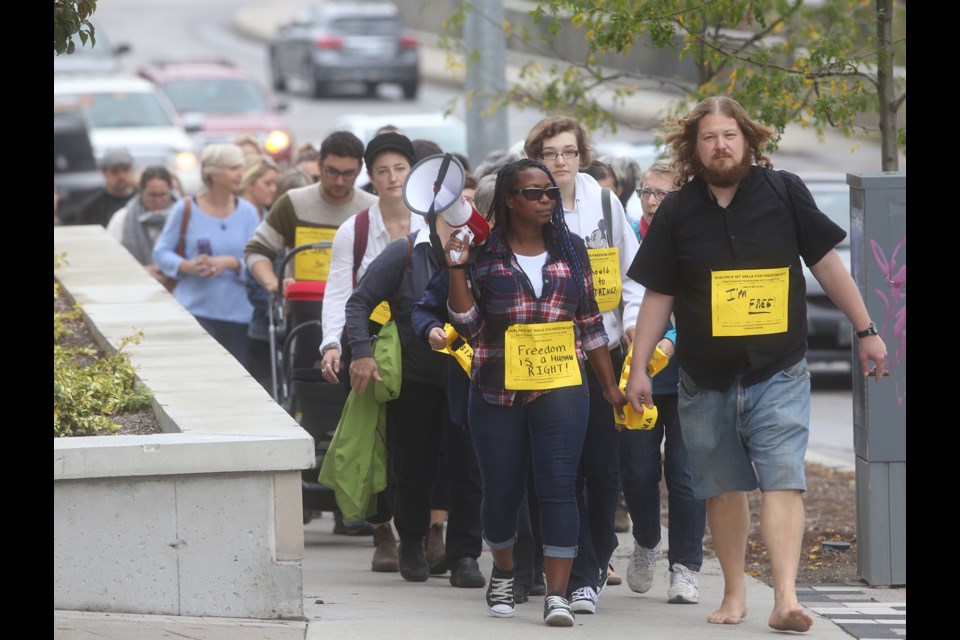Kathryn Cummings began her social work career by travelling to Southeast Asia on a personal mission to support victims of human trafficking,
“I went abroad, because I thought that was where it was happening. I went looking for it and I found it in Cambodia and I worked there for a year,” said Cummings.
After arriving home and working in a preventative education role, Cummings began working with youth who she said were vulnerable to the same issues.
“I came back to Canada — and it’s the same thing here, the same violations, the same perpetrators, the same abuses and it happens very locally,” she said.
Now the anti-human trafficking support worker with Victim Services Wellington, Cummings was among the speakers at the Walk for Freedom on Saturday, in an effort to raise awareness toward ending human trafficking.
It can be difficult for people who are caught up in human trafficking to escape, said Cummings.
“It’s vulnerable people being taken advantage of, having their rights violated, being used for sex and someone else is making money off of them. It can be really organized or really simple,” she said.
Human trafficking is not limited to what Cummings called the Hollywood image of women picked up by organized crime groups and forced into sex slavery.
“It could be very simply someone worked locally. Their addiction is being exploited and they are being moved from city to city or even just house to house within Guelph,” she said.
Cummings said she received almost 40 referrals in the one year since she took on the role of anti-human trafficking support worker in Guelph, with most victims between the ages of 15 and 30.
“We have seen as young as 13 up to 43 years old. The average age of entry, statistics say, is 12 to 16. I would say about half of the clients we work with are youth,” she said.
Jessica St. Peter, a public educator with Guelph-Wellington Women in Crisis and co-organizer of the event said many people do not believe human trafficking happens in our city.
The chains women wear when involved in human trafficking aren’t always physical, said St. Peter.
Organizers created a paper chain, with each link representing themes like stigma, racism, greed and poverty — all of which they say can lead a woman into being a victim of human trafficking.
“The reality is those chains are different forms of oppression and stigma that forces them into scenarios they are then exploited and taken advantage of,” said St. Peter.
After a number of supporters spoke at City Hall, about two dozen marched through downtown Guelph holding the paper chain and chanting to end human trafficking during the inaugural event.
St. Peter said she hopes the event will continue next year and into the future.
“I think it is important, no matter where we travelled that people are informed,” she said.
